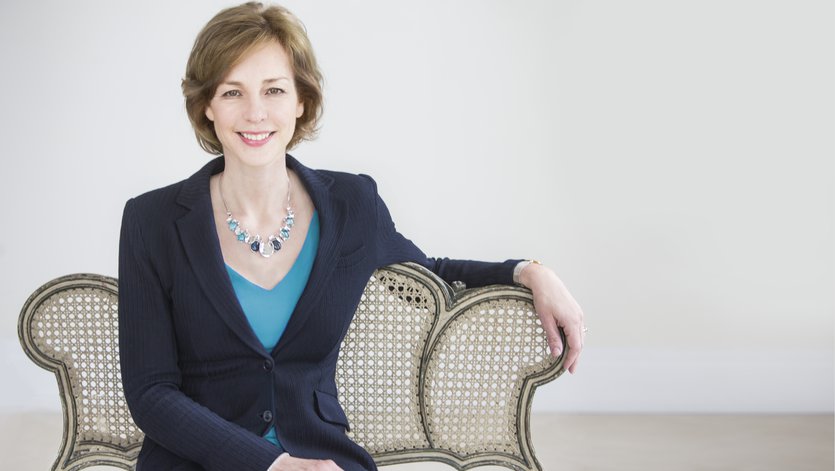Sexuality is something we have to talk about in cancer care. It’s become clear that cultural and gender barriers mean women are not getting the help they need to address this silent problem, which affects up to 85 per cent of them both during and after cancer treatment.
So I decided to connect specialists on a Q & A blog with questions you always wanted to ask, but barriers have prevented the conversation.
Wellbeing in sexuality is important when it comes to confidence, going back to work, relationship stress, caregiver fatigue, depression, anxiety and more.
This is why I’m here.
Rates of breast reconstruction in Canada still fall well below expectations following breast cancer mastectomy surgery.
Breast reconstruction is a decision many women make to complete the breast cancer treatment and create a wholeness to their journey.
In my second edition of Dr. Both Sides Connects, I’m interviewing Dr. Nancy de Kleer (pictured above), a plastic surgeon based in Oakville and an organizer of Breast Reconstruction Awareness Day, to ask her some questions about these difficult decisions when going through breast cancer.
When do we start planning breast reconstruction after mastectomy? Is it all about dealing with the cancer first?
We can start planning reconstruction at the time you learn you need a mastectomy.
Your reconstruction may be either done immediately at the time of reconstruction or delayed, which means it is done at a later date, after your mastectomy.
Delayed reconstruction is performed several months or even years after the mastectomy and any other cancer treatments are finished.
Factors that may affect the timing of your reconstruction include:
- The characteristics and stage of your cancer
- If you have had or will need radiation therapy
- If you will need chemotherapy after your mastectomy
Although your reconstruction may not be done at the time of your mastectomy, it is never to early to learn about breast reconstruction.
What are my options for breast reconstruction?
Breast reconstruction recreates all or part of a breast that has been removed by surgery. A breast can be reconstructed with an implant, your own body tissue, or a combination of an implant and body tissue. When your own body tissue is used, it is most commonly taken from the abdomen or back, however it may also be taken from other areas.
What will my new breast look and feel like?
Although there are many techniques of breast and nipple reconstruction, none of them will be able to give you back the exact same breast you had before. Here are some things to keep in mind:
- Visible incision lines will always be present on the breast, whether from reconstruction or mastectomy. Also, certain surgical techniques will leave incision lines at the site where tissue was taken for reconstructing the breast.
- If only one breast is affected, it alone may be reconstructed. A breast lift or breast reduction may be an option for the opposite breast to improve symmetry of the size and position of both breasts.
- A breast implant has no natural sag and will remain firm over time. Using your own tissue for reconstruction results in a softer breast with a more natural fell.
- Most women find the skin of the chest wall has less sensation after a mastectomy. Nerves that were removed during the mastectomy cannot be replaced and some loss of feeling is, unfortunately, permanent, but not usually troublesome.
Can I have breast reconstruction before radiation?
Yes, breast reconstruction can be completed before radiation. However, this may not be possible in every case.
Do you always have to take the nipple? Are there options for reconstruction or tattooing?
We do not always have to take the nipple.
A mastectomy called a nipple sparing mastectomy may be done in some situations.
If you do need your nipple removed, nipple reconstruction can be completed.
Nipple reconstruction may involve a surgical procedure (either a graft or local flap), or tattooing.
Many people opt to use a nipple prosthesis.
Surgery to create a nipple is a very quick recovery and not as involved as other reconstruction surgery.
What are your best resources (web/supports) for breast reconstruction? Who can I contact for a referral?
What can you tell me about BRCA positive prophylactic surgery?
Reconstruction may be completed at the same time as BRCA positive prophylactic surgery.
What can you tell me about possible complications?
Any type of surgery has risks, and breast reconstruction may pose certain unique problems for some women.
Even though many of these are not common, it’s important to have an idea of the possible risks and side effects.
Some of the risks during or soon after surgery include:
- Problems with the anesthesia
- Bleeding
- Blood clots
- Fluid build-up in the breast or the donor site (for a tissue flap), with swelling and pain
- Infection at the surgery site(s)
- Wound healing problems
- Extreme tiredness (fatigue)
Problems that can occur later on include:
- Tissue death (necrosis) of all or part of a tissue flap, skin, or fat
- Loss of or changes in nipple and breast sensation
- Problems at the donor site, such as loss of muscle strength
- The need for more surgery to fix problems that come up
- Problems with a breast implant, such as movement, leakage, rupture, or scar tissue formation (capsular contracture)
- Uneven breasts
Is it all covered by OHIP?
In general, yes, reconstruction is covered by OHIP.
There may be some aspects that are self-pay, but generally you can expect the reconstruction to be covered.
What is the best part of breast reconstruction?
Breast reconstruction may help you feel more comfortable about how you look after a mastectomy. It gives the ability to easily wear different styles of clothing and bathing suits and helps give a sense of closure to the difficult experience of being diagnosed with cancer.
It is restorative surgery that not only restores a feminine body contour, but restores a sense of confidence and well being.
Simply being given a choice of whether or not to have reconstruction is empowering for women who have had breast cancer, by giving them choices.
For further information, you can access the Canadian Cancer Society’s peer support program that will pair you with someone to talk to who’s had a similar cancer experience.
Click here to find out more about the Canadian Cancer Society’s peer support program.
You can also learn more about Breast Reconstruction Day, which takes places in cities across Canada, where breast cancer survivors explain their stories in a show and tell lounge and help answer some of these difficult questions for other women with cancer.
Click here to learn more about Breast Reconstruction Day.




